Can YOU buy canned wine?
uncanny
/?n'kani/
adjective
strange or mysterious, especially in an unsettling way.
Mmmm…. Traditionalists might turn up their noses (or feel ‘unsettled’, shame!) at the thought of wine in a can, but for many it ticks so many boxes.
The modern consumer is looking for something that is good for themselves and good for the environment. We eat free-range eggs packed into biodegradable cartons, single-use plastics are a no-no and many of us have recycling bins in our kitchen. So what about wine?
The two biggest culprits in the wine segment are preservatives, i.e. sulphur; and packaging, i.e. glass and cork which, although environmentally-friendly, are perhaps not the best options if you are trying to save resources and the planet.
Many of us can remember the hoo-hah when screwcaps were first introduced. The afore-mentioned traditionalists threw their hands up in horror, but nowadays we all tend to reach for the screwcap bottle first because we don’t have to go in search of a corkscrew, and we know the wine won’t be corked.
So too perhaps with canned wine? The market might initially baulk at the idea, but try enjoying drinks around the pool and knocking over a glass (ouch!); lugging a glass bottle (and mandatory corkscrew and glasses) on a steep hike up a mountain for the ultimate view (out of breath anyone?); or attend a concert in the park with jostling fans – spillage!
The obvious benefits of canned wine in these instances cannot be ignored.
Uncanny is the first certified premium canned wine to be launched in South Africa. The company was founded in Stellenbosch in 2018 by science geeks and creative entrepreneurs Arnold Vlok and Ruan Viljoen. Working with trusted and highly respected winemakers, they’ve invested significant time and effort to ensure that it meets the mark in every aspect. The wines first appeared on the shelves late last year and sales are growing.
“The environmental impact of our product is something we take very seriously,” explains Arnold. “The lightweight, easy-to-stack packaging makes our wine ideal for hiking and camping, while the aluminium cans are 100% recyclable and can be recycled over and over again. Incidentally, aluminium is the most recycled material in South Africa.”
Added to that, Uncanny wines contain no added sulphur but are preserved with a tannin derived from the indigenous honeybush called RDNT Genesis. This proudly South African product was developed by local IP company, Red Dawn, where Arnold serves as Innovation Manager. The honeybush plant, which grows in the Southern Cape, has traditionally been used to make a tea, much like its more famous Rooibos cousin found up the Cape West Coast. Until recently, canned wines have not been an option because the sulphur can cause corrosion of the can lining and can walls. “But now with the Genesis tannins, we’ve eliminated that problem entirely,” explains Arnold.
“A common misconception about wine in a can is the possible tinny taste but, as is the case with other canned drinks such as beer and cooldrinks, the wine’s flavour remains the same,” explains Ruan.
For this dynamic duo, the quality of the wines is of paramount importance. Premium quality grapes were sourced from the iconic Swartland and Stellenbosch regions for the Chenin Blanc and Merlot respectively, regions perfectly suited to these varietals and then made by highly respected winemakers.
The Uncanny No Sulphur Added Chenin Blanc 2019 carries a burst of vibrant energy with citrus and honeysuckle on the nose followed by delicious apricot flavours and a creamy finish. ?
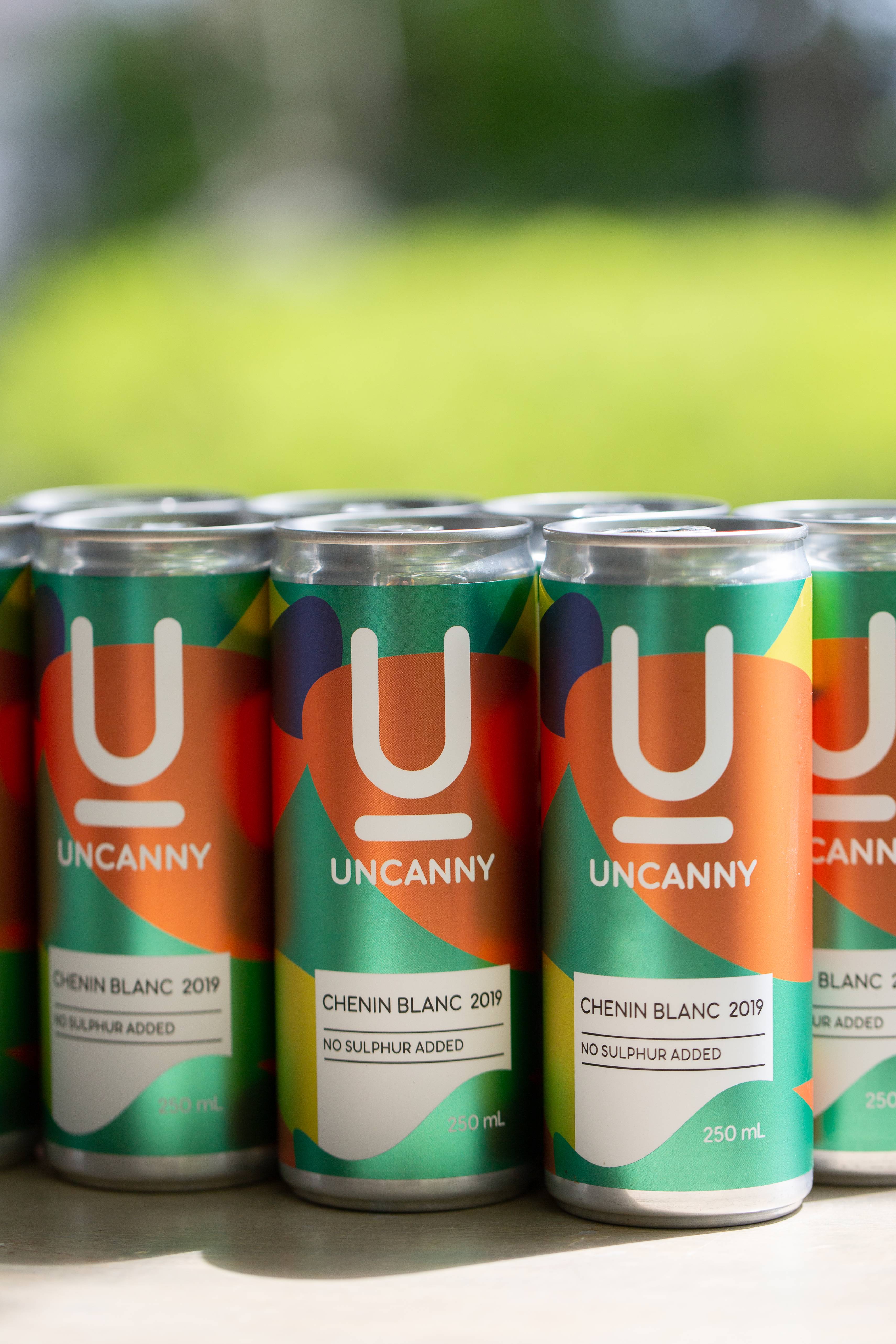
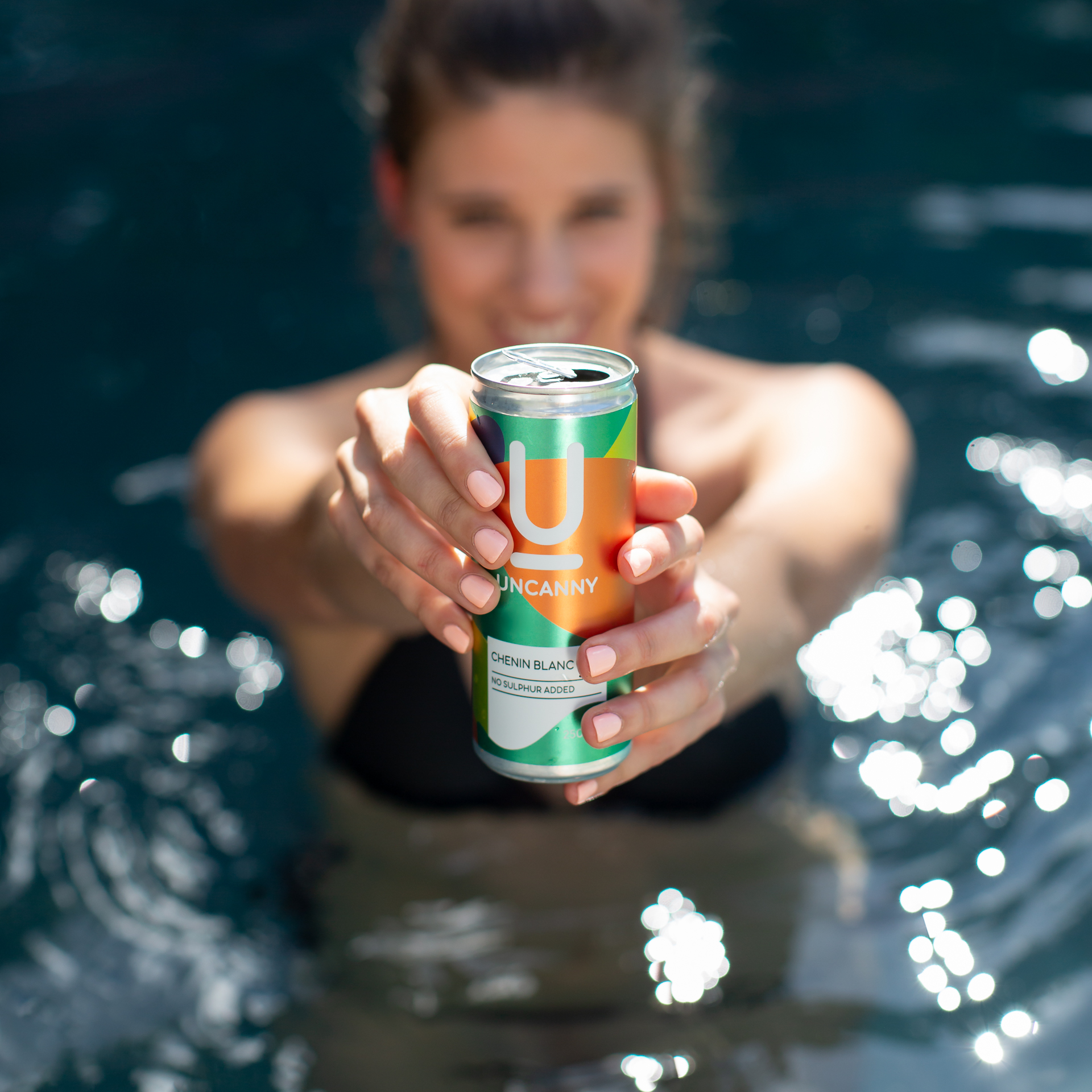
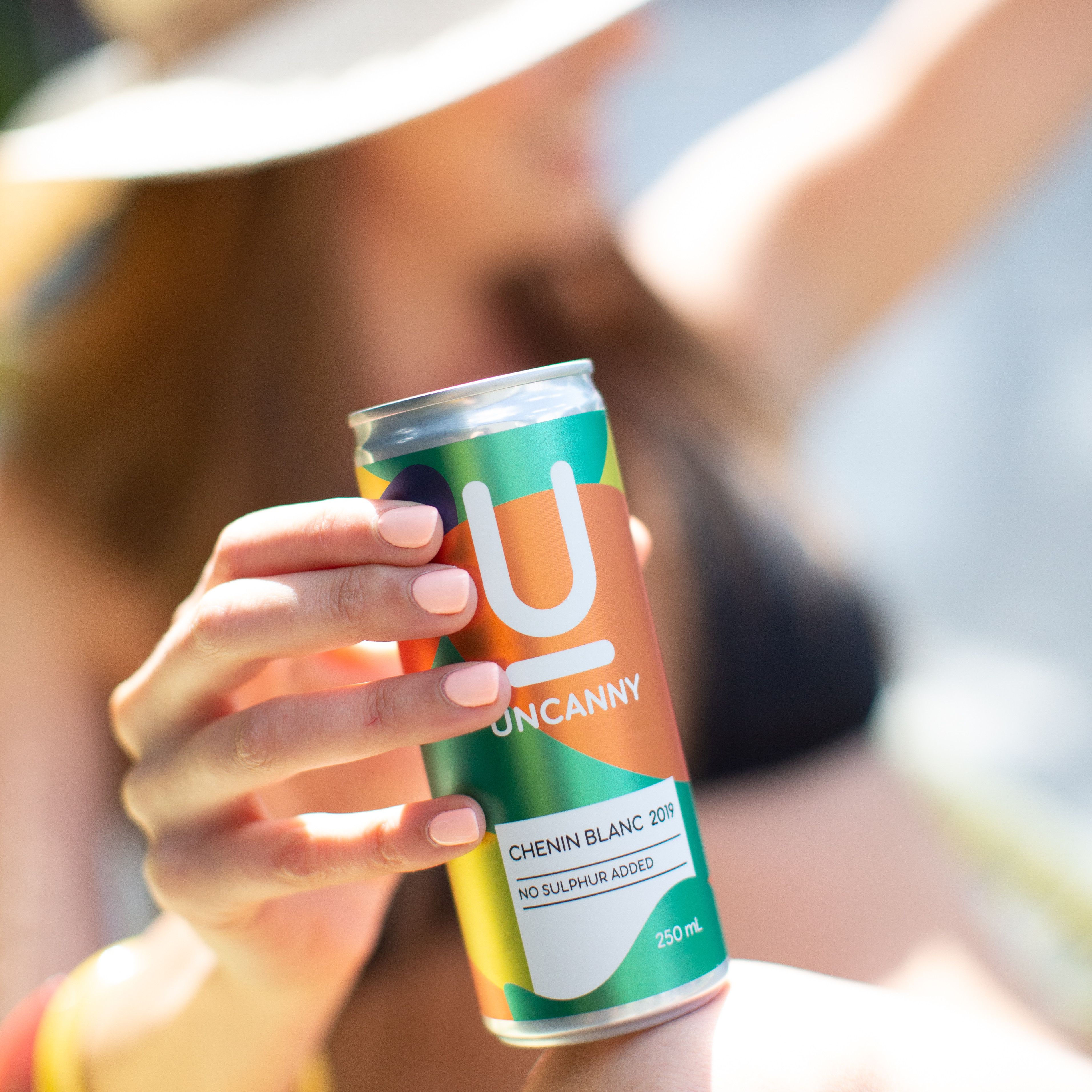
The Uncanny No Sulphur Added Merlot 2018 is a sensory feast: the mulberries and fynbos aromas on the nose are complemented with luscious dark chocolate on the palate. Served chilled around the campfire or at a starlight picnic.
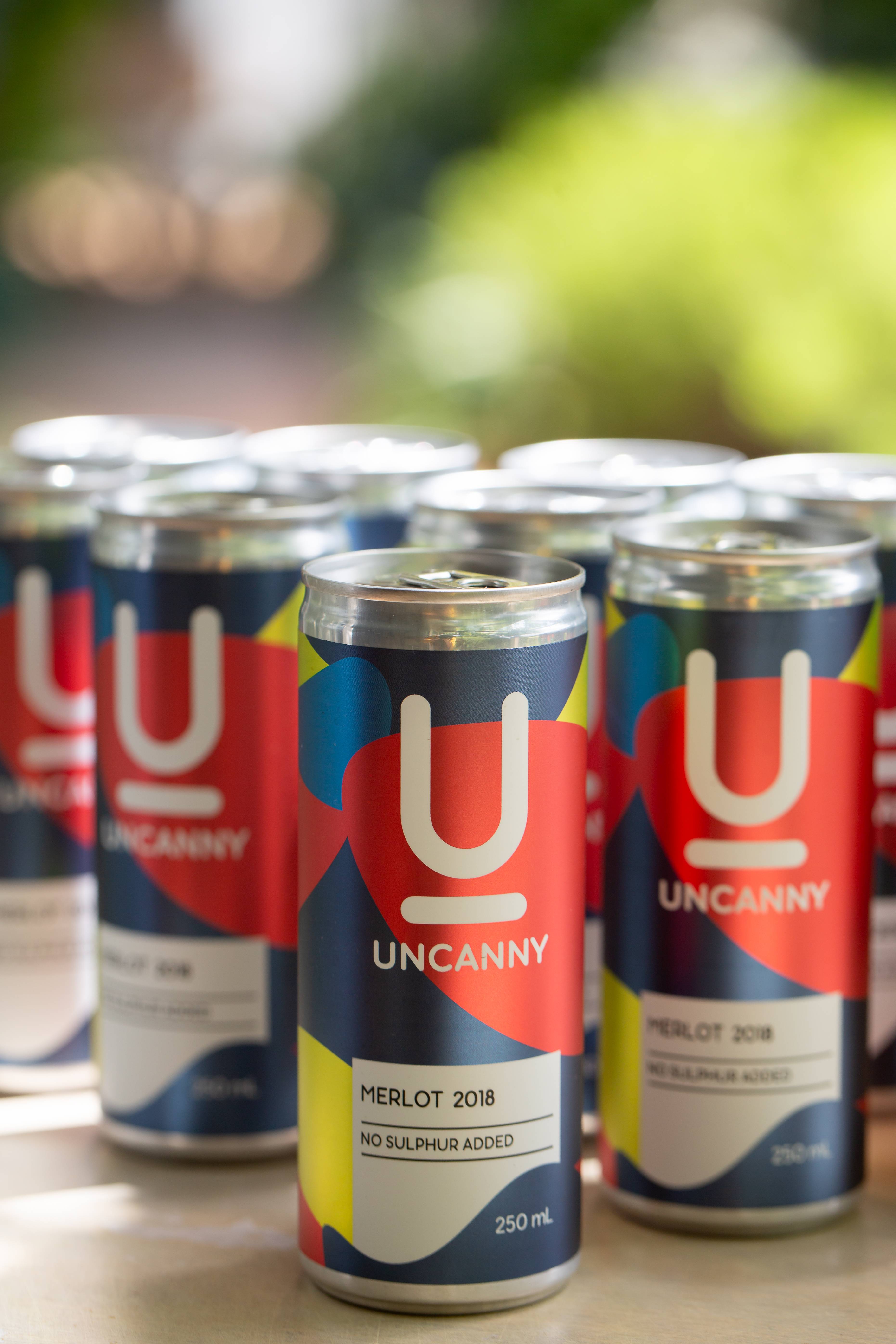
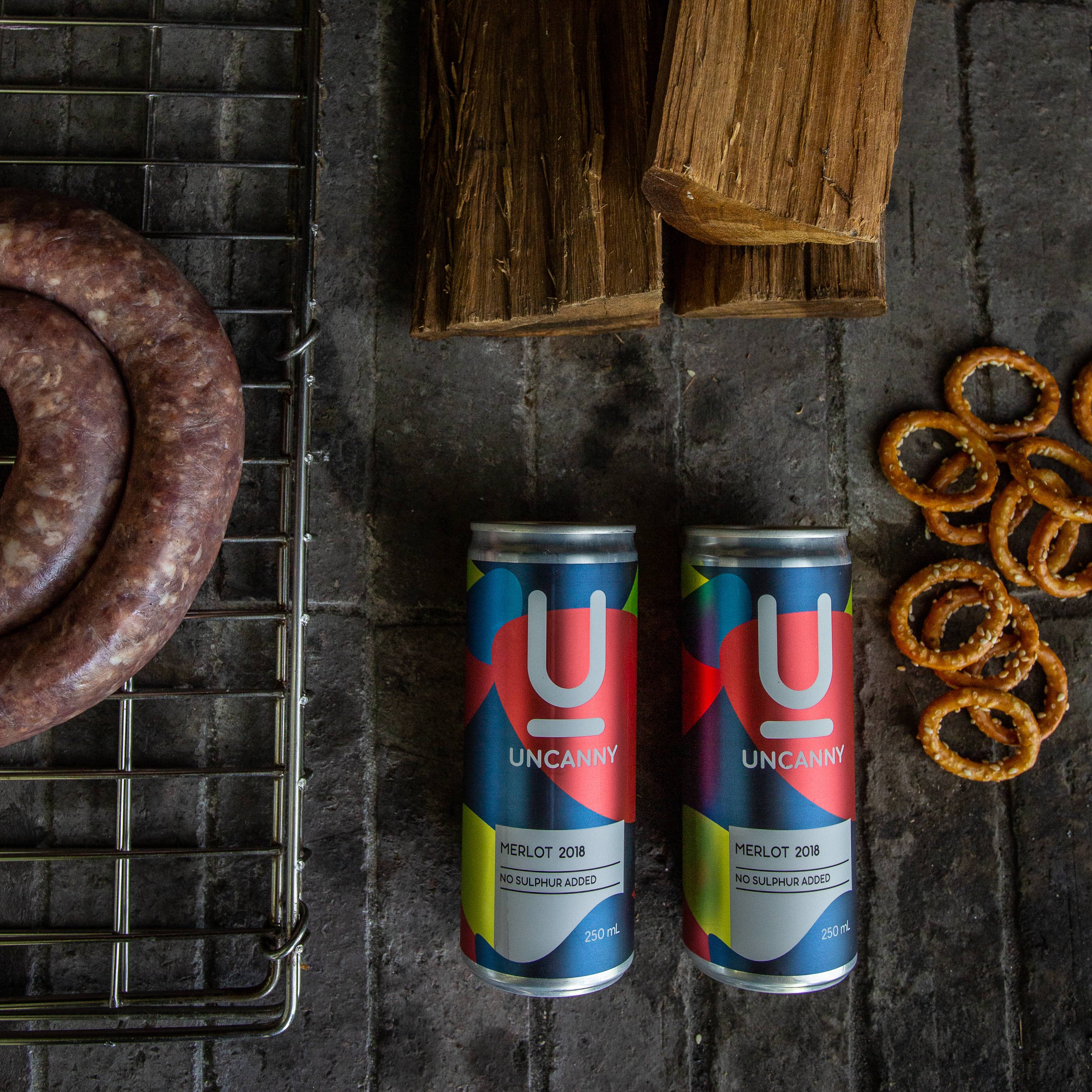
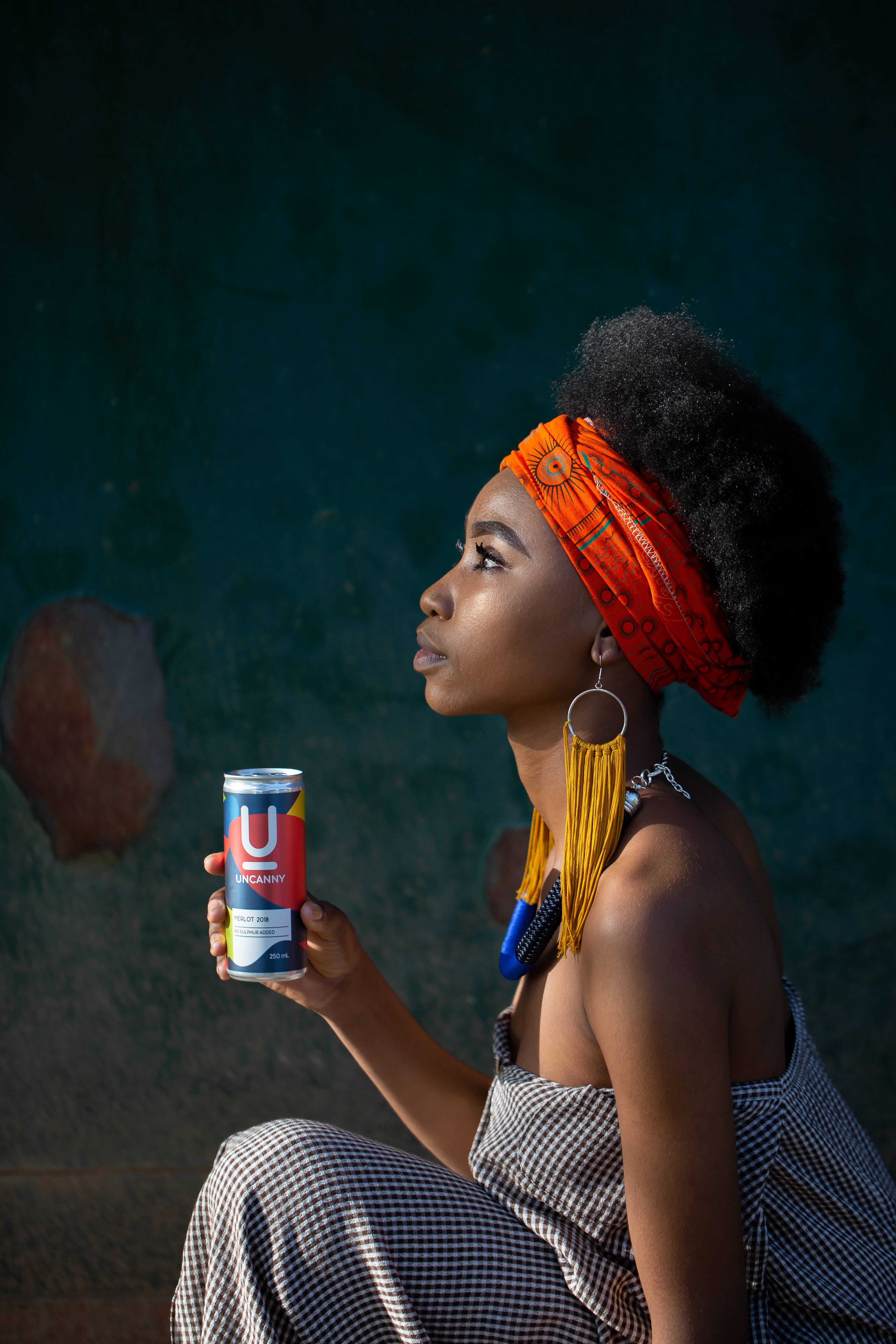
Watch out for the dry Pinotage Rosé that will be released later this year to complete the trio, and keep an eye out for more innovative products from South Africa!
- Julia Moore